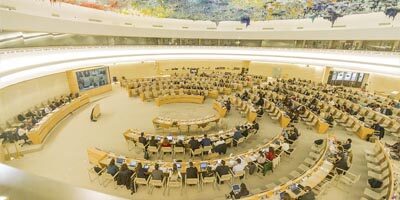“Consulation” no longer good enough:Consent of local indigenous people now required for commercial projects
The World Bank division that funds private sector projects, the International Finance Corporation (IFC), recently revised its operating guidelines to require the “free, prior and informed consent” (FPIC) of indigenous people for projects affecting them. This replaces a much-criticized policy that only required “consultation” with local people.
Human rights groups are pleased with the change, for which they have lobbied for years, but are concerned that the new policy – set out in what are called “Performance Standards” – does not go far enough and that the IFC will limit its use. In February, several international NGOs sent a letter to the IFC claiming, among other things, that the “IFC’s current approach does not include a clear commitment to ensuring that human rights are respected and protected in the context of its activities. IFC’s approach is also inconsistent with, and undermines, the emerging international consensus on the responsibility of companies to take concrete actions to ensure that they respect human rights.”
Asked about the IFC’s expectations for the new FPIC policy, a spokesperson said, “The IFC’s intent is to have our clients undertake comprehensive due diligence, including human rights risks and impacts, commensurate with the expected risks and adverse impacts and informed by local and country context. We believe that the Performance Standards themselves identify and address many of the human rights impacts that a company may face in the course of its operations.”
The new policy requires implementing FPIC when the project is located within traditional lands used by indigenous people, when natural resources located within traditional or customary lands will be commercially developed, and when a project makes commercial use of indigenous people’s cultural resources.
In operational terms, the IFC envisions that the FPIC “will be established through good faith negotiation between the client and culturally appropriate institutions representing communities of Indigenous Peoples. The client will document (i) the mutually accepted process between the client and Indigenous Peoples, and (ii) evidence of agreement between the parties as the outcome of the negotiations.”
“We have undertaken a review of the scope of each Performance Standard against the International Bill of Human Rights. This is part of a systematic effort to understand the relationship between the Performance Standards and human rights.”
The new policy has implications for countries like Canada, which generally accept World Bank policy as the world standard and match it in their own international development programs.
See no evil?
The World Bank and IMF high opinions of Tunisia, Egypt & Libya, despite their rule by tyrants and entrenched social and economic inequality and oppression
Tunisia
World Bank: “Tunisia has consistently scored above average on most dimensions of comparative governance rankings and development indexes… Tunisia is far ahead in terms of government effectiveness, rule of law, control of corruption and regulatory quality.” (Current Tunisia profile on the World Bank website)
IMF: “Plans to further enhance business climate and competitiveness, including through continued liberalization and openness… are key in developing new sources of growth. Staff encourages the authorities to implement the underpinning reforms with the same steadfastness and pragmatism demonstrated in the recent past.” (2010)
US embassy (from Wikileaks): “Tunisia’s financial sector remains plagued by serious allegations of corruption and financial mismanagement. The lack of transparency and accountability that characterize Tunisia’s political system similarly plague the economy, damaging the investment climate and fueling a culture of corruption.” (2008)
Egypt
World Bank: “There is a broad overlap between the thinking of the government of Egypt and that of the Bank with regard to Egypt’s key development challenges and reform agenda.”
Libya
The IMF “commended the authorities for their ambitious reform agenda, and looked forward to the effective implementation of the many important laws passed in the last year, complemented by policies aimed at adapting the labor force to the economic transformation.” (2011)






